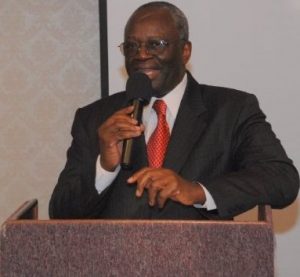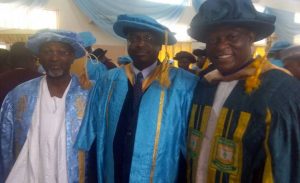If Bayero University were to be a country, it could be said to be at American economist, W. W. Rostow’s stage of take-off now. At its 34th Convocation ceremony staggered over last week, it announced, among other things, that its graduands could collect their certificate on convocation day. For a university where getting transcripts was a problem till recently, that is a very positive sign of putting bad days behind. This is more so that Prof Yahuza Bello, the Vice-Chancellor, is also speaking confidently about expansion of facilities as well about university wide quality control, including its outreaches. Like the University of Ibadan but unlike many other universities especially in the northern part of the country, Bayero University is hooked unto the culture of former Vice-Chancellors returning to the campus to continue teaching. Apart from Prof Sani Zahradeen who has taken up an involving position and Prof Abubakar Rasheed who is serving as NUC Executive Secretary, almost all recent former VCs of BUK are on ground: from Prof Dandatti Abdulkadir to Bello Danbatta to Attahiru Jega. Now, it has just got a brand Business School it aspires to link with some top university outside the country.

Prof Ibrahim Gambari, current Chairman of Council who gave the 34th Convocation Lecture, arguing the inseperability of security of the state from the process of development and from governance but bound into a nexus by leadership
When all these are added to its history of chairmen of the University Council – Umaru Shehu, Yahya Gusau, Ochapa Onazi, Yayale Ahmed and when everything is seen in comparative terms, someone could go to town proclaiming the Bayero University Moment.
This Moment could be said to be inevitable as BUK, perhaps more than any other university in Nigeria, has had the most intense self-engagement towards what one might now call a settled self-understanding that sees the future in the expansion it is going through. The journey could be traced to it being about the only one that rejected the name originally given to it. Instead of the University of Kano chosen for it, its thinkers preferred Bayero University, Kano, calling University of Kano a flat name.
Secondly, the university framed itself in a way that generated tension right away. Dr. Mahmud Tukur, one of BUK’s earliest Principals, (not yet VC) captured the tension best when he wrote in Consolidating the Citadel, Bayero University, Kano, 1994 – 2004, (P554) as follows: “It should be noted that a creative tension existed on these tendencies both within the Ahmadu Bello University academic community and in our interactions with our colleagues in Ibadan, Ife and Lagos universities. In the latter group, we had discoursed vigorously but politely with Billy Dudley, Segun Osoba, (Ife Historian), Bayo Adedeji, Ayo Teriba, Victor Diejemoah, Otente (Otiono?) Nduka, Ken-Saro Wiwa, Obi Wali, etc. Exchanges with Simon Adebo and Jerome Udoji were also both educative and exhilarating. On the ABU front, I have already made an oblique reference to the skirmishes between the Bayero College brigade and the O’Connell, Crowther and Badawi group. These extended to the Senate, Academic Planning Committee and the Social Science seminars”.
What was the tension under reference? It was the constitution of Abdullahi Bayero College and later Bayero University, Kano as being about reflecting “those beliefs, values and traditions that the society holds most sacred”. Although Dr Tukur did add monitoring of “changes that comes with time in assimilating and disseminating universal truths”, it was always this formulation about the university as a guardian of “those essential values and nuances that give society its identity” that critics recalled whenever there was one little ‘clash of civilisation’ on the campus. Little ‘clashes of civilisations’ were certainly frequent on the campus in the 1990S, tense moments typified by verbal and, sometimes, physical clashes between members of the Muslim Students Society, (MSS) and the mainstream or radical student activists.

L-R: Prof Attahiru Jega, Prof Habu Mohammed, the HOD of Political Science @ Bayero University, Kano and Prof Abdulrasheed Na’Allah, the incumbent VC of Kwara State University, Malletti,
The antagonists said a university should go beyond mirroring the spirit of the community and guarding its morals to critiquing it and producing knowledge that transcended that. When the debate got hot, some of the antagonists wondered if Kano itself was not more vibrant than the university. Before this phase of the self-interrogation, there was another one typified by the title of the essay by one of its participants, “BUK: Time to Look Beyond the Badala”. Nobody would know now who between Dr Tukur and his antagonists is right, what with the collapse of universalism in favour of contingency.
Prof Attahiru Jega’s national leadership of the Academic Staff Union of Universities, (ASUU) contributed significantly to rescuing BUK from public or national perception of the university on account of those clashes, raising its stature. That was also the period within the university in which student leaders, wanting to be like the lecturers they admired, came up with the most provocative analyses at seminars that were taking place all over the campus. It would seem that all these have totalled into a BUK that is determinedly looking forward to being a factor in the politics of knowledge production in Nigeria in the era when one of the younger, confident private universities could give anyone of the older universities a run for their age and name.




























